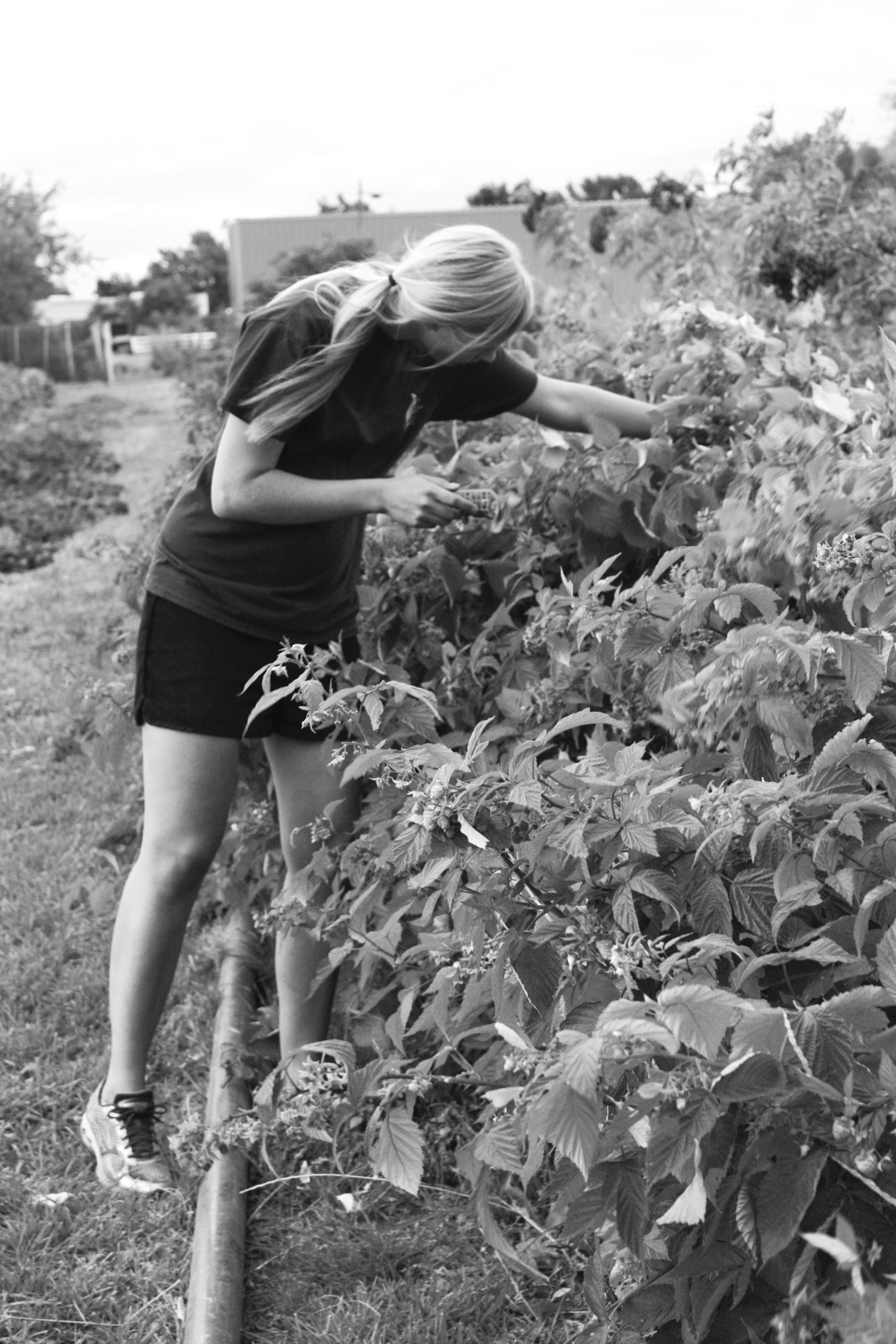Student-run organic farm is finally up and running
After months of planning, preparation and care, students and community members are reaping the rewards of USU’s student organic farm.
The one-acre student-run farm, which was formed in the spring of 2008, has provided fresh, organic produce for distribution while offering students a unique opportunity to further their education.
Faculty advisor Jennifer Reeve, who oversees the farm program to ensure university policies are followed, said the farm is a valuable asset to students studying in the plant science program.
“The vision was really to provide hands on experience for much of what students learn in the classroom, here in crops and soils,” Reeve said. “A student farm is just an ideal way for students to get hands-on experience.”
Reeve said the farm provides students a place to put the technical skills they learn in the classroom into practice.
Chloe Wardle, who began working as a volunteer on the farm in 2011 and is now one of two on-farm interns, said her experience at the farm has been valuable to her academic career in environmental studies.
“It’s a completely hands-on learning experience for students where they can explore, learn from their mistakes that they make on the farm and not really have to deal with the risk of losing their crop and not making a profit,” Wardle said.
Run by two student managers, a handful of interns and numerous volunteers from various organizations, Reeve said the farm is able to maintain a high level of productivity, making it possible to provide produce for a low cost to students as well as share its excess with those who volunteer their time at the farm.
“We’ve always got plenty to share,” she said.
Funding for the farm, which does not receive any programmatic support from the university, is raised through its twice-weekly produce stand on campus held on the Taggart Student Center patio as well as through its community supported agriculture program, or CSA, which is open to anyone who would like to participate each year to receive a weekly supply of produce from the farm.
“People will pay up front at the beginning of the season and then for 20 weeks, they’ll come once a week and pick up a basket,” Wardle said.
Reeves said the 55 CSA shares sold each year provide nearly all necessary funding for the farm as well as payment of interns and staff.
At the farm’s organic produce stand, which will be on the TSC Patio every Wednesday and Thursday through the end of September, Wardle said students will sell things like corn, tomatoes, cucumbers and melons as well as a few “cool season” vegetables, including cilantro, kale and chard, for the remainder of the season.
Reeve said anyone interested in helping at the farm may sign up for regular volunteer hours on the program’s website.

